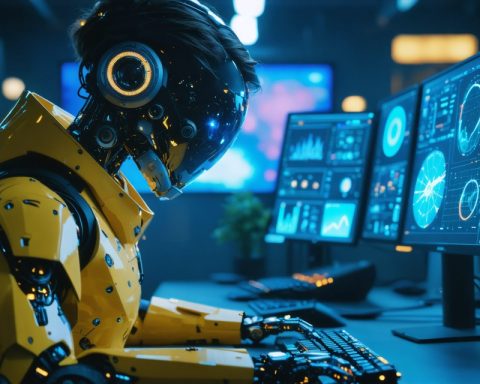In an age where technology is advancing at a rapid pace, you may be wondering: what exactly is robotics and why is it so important? The field of robotics combines elements of engineering, science, and technology to create machines called robots, which can perform tasks autonomously or semi-autonomously.
The discipline draws from numerous areas including electronics, computer science, artificial intelligence, and biology to name a few. These multifaceted machines are designed to assist and mimic human actions. The overarching aim of robotics is to develop systems that can augment human capabilities, make tasks easier, and even take on roles in areas that may be hazardous to people.
Robots come in various shapes and sizes and are utilized in a myriad of industries. In manufacturing, robots are revolutionizing production lines with their precision and efficiency. In healthcare, they assist surgeons in complex surgeries with unparalleled accuracy. Even in daily life, domestic robots are helping to keep homes clean with minimal human intervention.
The future of robotics is particularly exciting as the integration of artificial intelligence into robotics systems is paving the way for more intelligent and capable robots. These could learn and adapt over time, drastically changing how we work and live.
Understanding what robotics is can help us appreciate its potential to redefine various sectors and even daily life. As technology continues to evolve, the impact and capabilities of robots are expected to expand even further, making robotics a pivotal part of our future.
The Unseen Impact of Robotics on Our Global Society
Robotics isn’t just a field devoted to creating machines that mimic human actions; it represents a monumental shift in how society interacts with technology. But how does this infusion of robotics impact everyday life, and what are the subtleties not often discussed?
Intriguingly, the widespread adoption of robotics presents complex challenges alongside opportunities. A significant social impact revolves around employment. As robots become more adept at performing tasks traditionally done by human workers, there’s growing concern about job displacement in industries like manufacturing and logistics. This poses questions about the future of work and the need for new skill development, particularly in robotics programming and maintenance.
On a more expansive scale, robotics has profound implications for developing nations. Countries with emerging economies could harness robots to leapfrog traditional development stages, leading to enhanced infrastructure and economic growth. However, financial constraints and technological gaps might widen the disparity between advanced and developing countries.
In agriculture, robots are revolutionizing farming by optimizing planting processes, reducing waste, and improving yield predictions. This technological integration helps to sustain food supply for a growing global population but raises questions about the ecological impacts of robotics on traditional farming communities.
What are the ethical considerations? As robots become more embedded in human contacts such as caregiving, there are ethical questions about emotional dependency on machines and the extent of autonomous decision-making by AI.
For further insights into robotics, visit Robotics.org and IEEE.org, where you can explore more about robotics’ evolution and impact.








